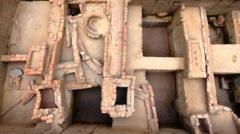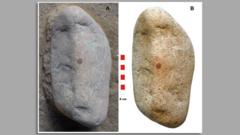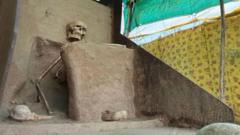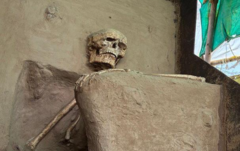In the early 1900s, Rakhaldas Banerjee, an Indian archaeologist and explorer, unearthed the ancient city of Mohenjo-daro in now Pakistan, revealing the vast Indus Valley Civilization that spanned a massive area in South Asia. Banerjee’s explorations began in the British colonial era, showcasing his passion for history and archaeology, yet he often rubbed officials the wrong way with his independent methods.
His discovery of Mohenjo-daro, meaning "mound of the dead men," represented one of the most significant historical finds, but Banerjee's legacy became complicated due to controversies over his behavior at the Archaeological Survey of India (ASI). Accusations of financial misconduct and attempts to procure artifacts without permission led to disputes that overshadowed his accomplishments.
Despite his troubles, Banerjee was recognized for his excavation work, which revealed ancient Buddhist stupas and artifacts that linked Mohenjo-daro to Harappa. Nevertheless, after financial and personal issues, he resigned from the ASI in the late 1920s amid a theft investigation that ultimately found no wrongdoing on his part.
Banerjee's life ended prematurely at 45, but his contributions to archaeology and discovery of Mohenjo-daro continue to resonate among historians, raising questions on the recognition and preservation of legacies in the field.






















